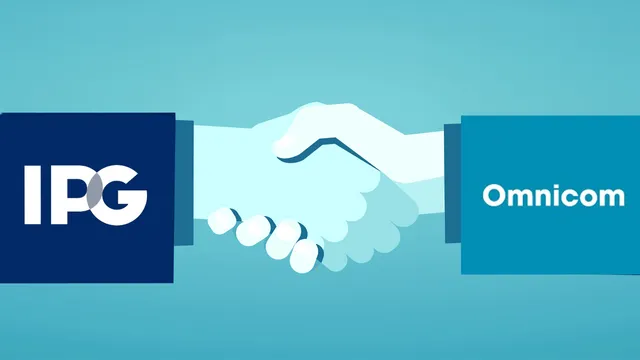In a landmark ruling that may reshape the competitive environment of international advertising, the European Commission has granted unconditional approval for Omnicom’s acquisition of Interpublic Group (IPG), eliminating one of the remaining significant regulatory obstacles to a transaction that will establish the world’s largest advertising and marketing services firm.
The merger was approved on November 24, 2025, following a thorough antitrust assessment that found no evidence that it would substantially decrease competition throughout the European Economic Area. This is a clear indication that EU regulators consider the industry to be sufficiently competitive even after the merger, as no behavioural or structural adjustments were necessary.
The merger is expected to finalize soon, according to analysts, as most other significant governments have already given their approval.
Why the EU Approved the Deal, and what that means
The European Commission’s findings indicated that the merged Omnicom-IPG group would possess only “moderate market positions” in essential including creative advertising, media buying, and integrated communications.
The Commission cited several mitigating factors:
Intense competition persists from major network firms such as WPP, Publicis Groupe, Dentsu, and Havas.
Media owners possess considerable negotiating power, particularly in the digital realm, which complicates the ability of agencies to exert substantial influence.
Advertisers can transition between agencies with relative ease due to competitive bidding practices and brief contract durations.
The deal generates scale; however, regulators do not perceive it as leading to a monopoly in the industry.
This clarity enables Omnicom and IPG to circumvent the delays and divestment obligations that have complicated other significant mergers in the technology and communications sectors.
Inside the Deal: Structure and Leadership
The merger, valued at over $13.25 billion, is structured as an all-stock transaction, whereby IPG shareholders will be issued Omnicom equity in accordance with a specified conversion ratio.
Leadership strategies are equally strategic:
John Wren, the current CEO of Omnicom, will retain his leadership role of the merged organization.
Philippe Krakowsky (CEO of IPG) will assume the roles of Co-President, Chief Operating Officer, and Co-Chari of the Integration Committee.
With this structure, the board is indicating continuity, while also illustrating that this is not an assimilation, but rather a collaborative and integrated development for the future.
Why This Deal Matters for the Industry
If the previous decade was characterized by agency financial consolidation, this decade is likely to be defined by data integration, with this merger positioned at the core of that transition.
1. A response to the dominance of major technology corporations
Advertising has evolved beyond mere creativity and media purchasing; it now encompasses artificial intelligence, identity resolution, measurement, and first-party data infrastructure.
Google, Meta, Amazon, TikTok, and Alibaba have established proprietary advertising ecosystems, and in numerous instances, comprehensive full-stack media operations.
Omnicom and IPG establish a strategic counterbalance, particularly in:
Multi-market compensated advertising procurement
Enterprise-scale activation of first-party data
AI-powered targeting and measurement
Strategic planning for cross-channel brand experiences
In other words, this merger represents an enhancement of capacity tailored for the age of algorithmic marketing.
2. Scale and integration represent the emerging competitive advantage
Both companies independently established robust agencies specializing in media, creative services, customer experience, analytics, and digital expertise.
Collectively, the consolidated organization possesses:
Enhanced access to client data
Expanded vendor leverage
Enhanced integrated execution capabilities across multiple media channels
Enhanced purchasing capacity for emerging channels including retail media, CTV, DOOH, and programmatic.
Clients seek fewer collaborators to deliver greater outcomes.
This agreement establishes the new entity as one of the limited global organizations capable of credibly making that commitment.
Integration: The Real Test Starts Now
In theory, a merger of this magnitude would be simple, but in practice, it would be very challenging.
We have a lot of work ahead of us:
Synchronizing technologies
Harmonizing world leaders
Keeping the best employees
Streamlining processes without undermining client groups
Finding the sweet spot between cost-effectiveness and individual expression
With any luck, the new Omnicom-IPG will be able to reimagine the role of agency networks in the age of artificial intelligence. If this does not happen, customers may re-open their reviews of global agencies citing the disruption as the reason.
Market participants will be vigilant in any case.
What This Means for Advertisers
Merger implications for brands include:
Marketing solutions that are more integrated
One of the most extensive collections of: will be in the combined group.
Information about audiences
Capability for attribution
Instruments for cross-platform analysis
Media distribution and creative platforms
More effective price negotiating power, both ways
Despite the new mega-group’s potential to negotiate more favorable commercial terms as a result of its size, publishers still hold sufficient market power to do so on their own terms.
At least for the time being, the ecosystem is stable.
Added stress for smaller organizations
Not due to a lack of inventiveness, but rather to the fact that fewer partners desired by advertisers for full-funnel, data-powered, quantifiable marketing.
A Historic Moment for Advertising
This merger will go down in marketing communications history as one of the most significant acquisitions after it receives approval from the European Union.
In a market where tech platforms have evolved from ad vendors to end-to-end customer experience platforms, the networks are vying for relevance and domination.
Customers see it as the start of a new age that will be characterized by:
Artistic as opposed to journalistic
Company name vs. Efficiency, or
AI against human creativity
All of these on a worldwide scale, though.
Merger closing could happen soon.
Nevertheless, the effects will become apparent in the coming decade.
ALSO WATCH MARKETING EDGE ONTV







Comment
No comments found.